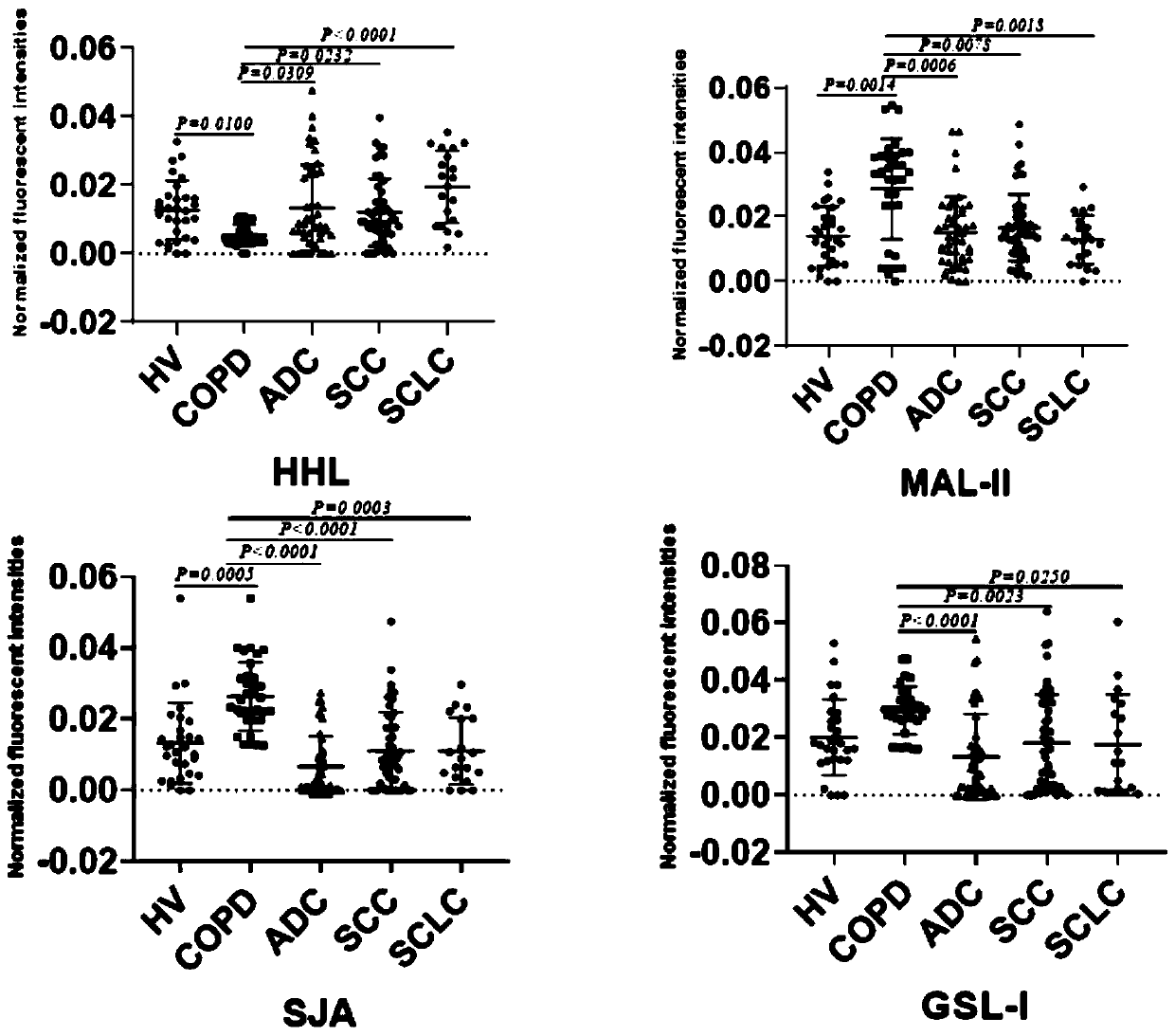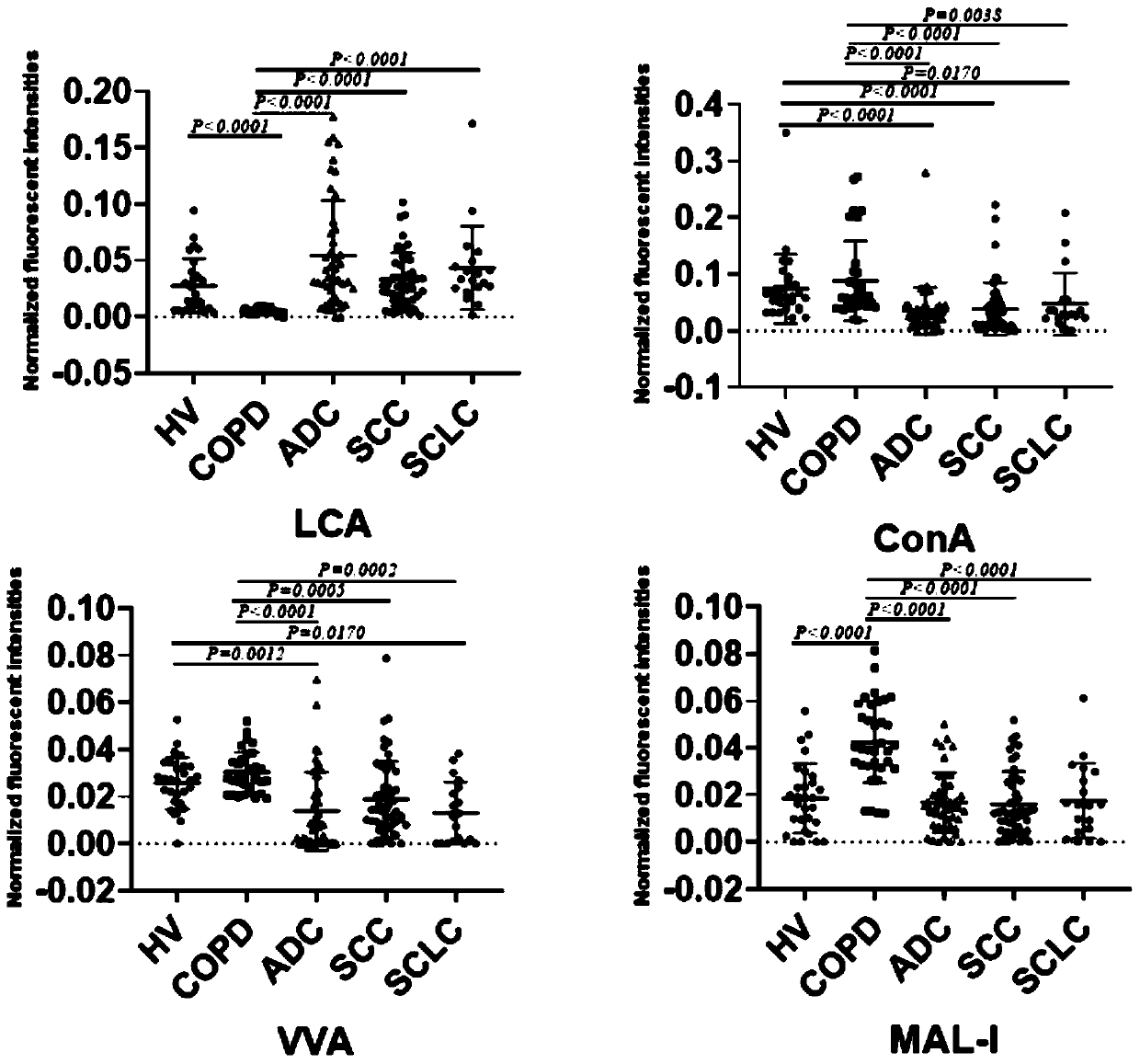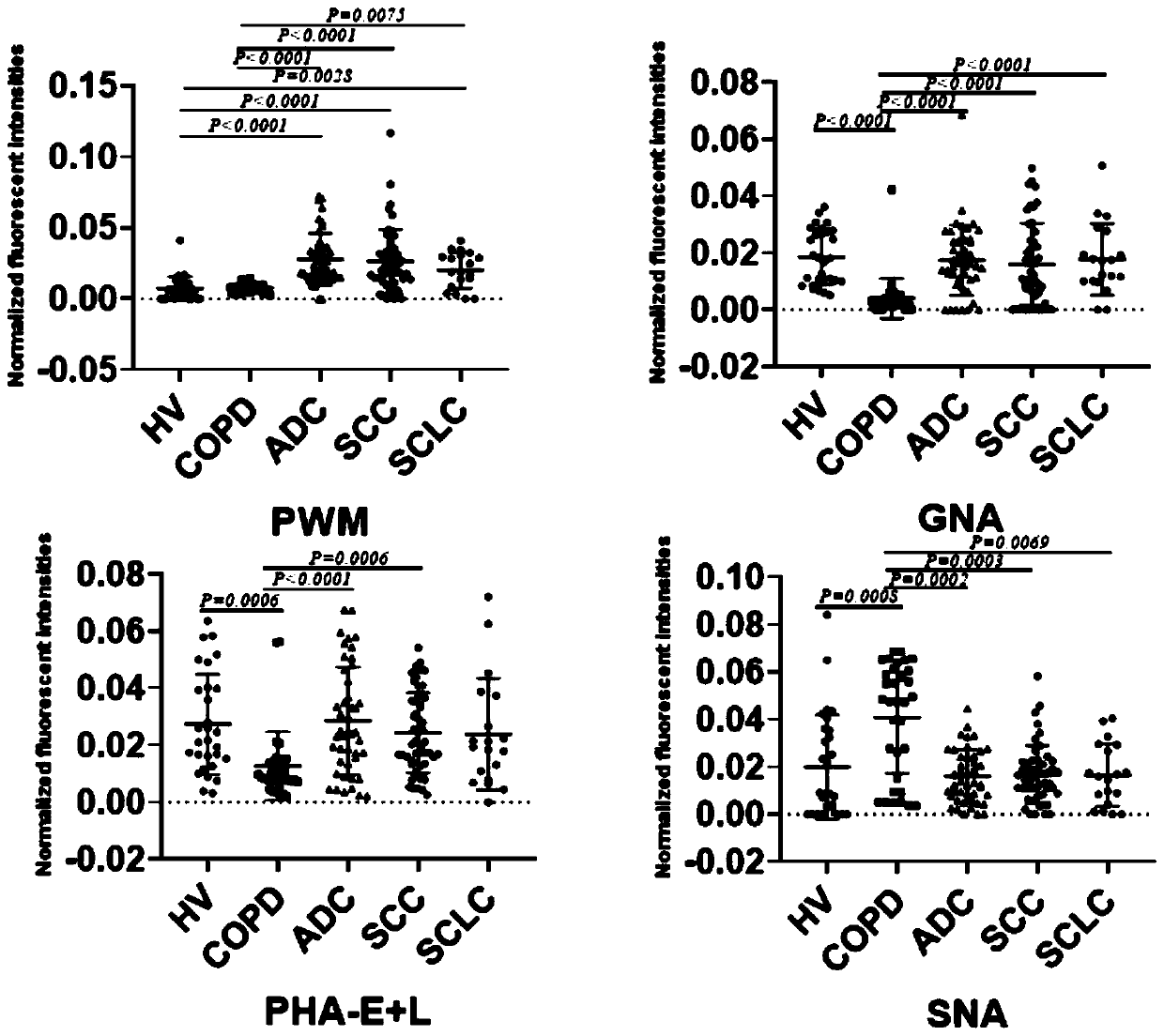An application of specific lectin combination in construction of a test tool for identifying small-cell lung cancer based on saliva glycoprotein carbohydrate chains
A technology of small cell lung cancer and lectin, which is applied in the general structural detail detection of gas analyzers, biological testing, measuring devices, etc., can solve problems such as no obvious symptoms, poor prognosis of lung cancer, and loss of opportunities for surgical cure
- Summary
- Abstract
- Description
- Claims
- Application Information
AI Technical Summary
Problems solved by technology
Method used
Image
Examples
Embodiment Construction
[0037] The relevant verification experiments and analysis of the focus of this application are introduced in detail below, and the inventor's specific research and development process is not limited thereto.
[0038] 1. Screening of differential sugar chain structures of salivary proteins in patients with HV, COPD, ADC, SCC, and SCLC
[0039] Research methods:
[0040] 1.1. Collection and pretreatment of saliva samples
[0041] The saliva samples of healthy volunteers and patients with benign lung diseases, lung adenocarcinoma, lung squamous cell carcinoma, and small cell carcinoma used in this experiment were all strictly approved by Northwest University and the First Affiliated Hospital of Xi’an Jiaotong University (HumanResearch Ethics Committees (HumanResearch Ethics Committees) HRECs)). All volunteers who donated saliva samples, together with the clinicians who assisted in sampling guidance, were informed, agreed and highly cooperated with the research work, and complet...
PUM
 Login to View More
Login to View More Abstract
Description
Claims
Application Information
 Login to View More
Login to View More - R&D
- Intellectual Property
- Life Sciences
- Materials
- Tech Scout
- Unparalleled Data Quality
- Higher Quality Content
- 60% Fewer Hallucinations
Browse by: Latest US Patents, China's latest patents, Technical Efficacy Thesaurus, Application Domain, Technology Topic, Popular Technical Reports.
© 2025 PatSnap. All rights reserved.Legal|Privacy policy|Modern Slavery Act Transparency Statement|Sitemap|About US| Contact US: help@patsnap.com



